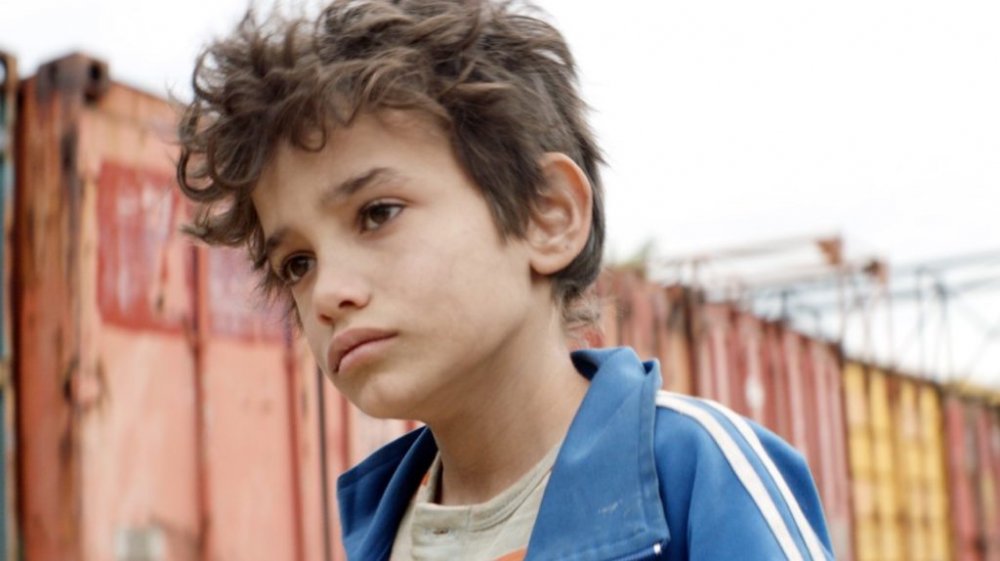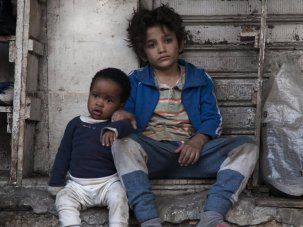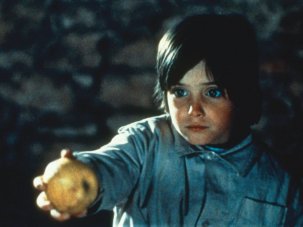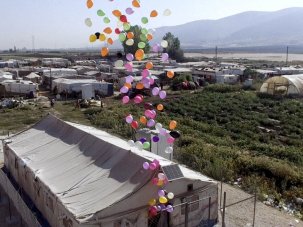Man hands on misery to man at an astonishing rate in Nadine Labaki’s righteously angry slum-survival melodrama. As the film opens, its furious streetwise hero, 12-year-old Zain, is in court, suing his neglectful parents for having given birth to him. The piercing child’s-eye view of his chaotic Beirut life, to which we flash back, suggests he has a case.
Lebanon/Cyprus/Qatar/Monaco/USA/France 2018
Certificate 15 126 mins approx
Director Nadine Labaki
Cast
Zain Zain Al Rafeea
Rahil Yordanos Shifera
Yonas Boluwatife Treasure Bankole
Souad Kawsar Al Haddad
Selim Fadi Kamel Yousef
Sahar Cedra Izzam
Aspro Alaa Chouchnieh
[2.35:1]
With subtitles
UK release date 21 February 2019
Distributor Picturehouse Entertainment
spotlight.picturehouses.com/capernaum/
► Trailer
Labaki’s brutally honest dive into the Dickensian conditions of Zain’s childhood chooses neorealism over poverty porn, her camera roving with fly-on-the-wall tenacity through his ceaseless work round of shop deliveries and street hawking. The only activity bringing the family together is soaking clothes in tramadol-tinged water so that Zain’s jailed brother can sell drug-laced shots in prison, an artisanal interlude with the tang of authenticity. Shoplifters, another recent tale of family criminality, looks rose-tinted by comparison.
In contrast to her previous woman-power comedies Caramel (2007) and the Lysistrata-lite Where Do We Go Now? (2011), Labaki’s direction here is gritty and assured. The only nod to her comic roots is an exquisitely awkward masquerade in an official’s office, where a pair of street sellers pretend to be bourgeois sponsors in an attempt to get their friend an ID card. Otherwise, the restless child-height camerawork gives a punchy, almost documentary feel throughout, lending hefty emotional impact to the fierce family fights spilling and flailing through two-room flats and down staircases, and to the pelting street chases.
This fluid naturalism is greatly helped by a local non-professional cast and a sharp improv-embroidered narrative forged from the real-life pitfalls that dog unregistered, unschooled and exploited Lebanese children like Zain and his siblings. Despairing but intrepid, Zain runs off when he can’t stop his parents selling his bird-boned pre-teen sister to their landlord as a child bride. Even the makeshift family he subsequently forms at a seaside fairground with motherly Ethiopian illegal immigrant Rahil and her baby son Yonas inevitably leaves him adrift.
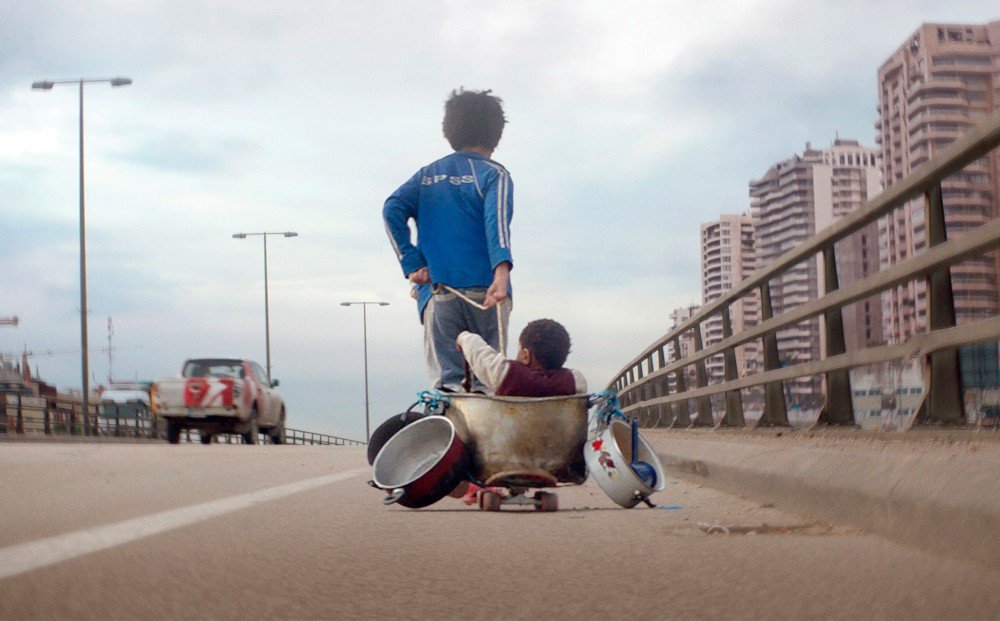
Stiff with dust and detail, the film immerses us in crammed squalor and street life, which gain a bleak poignancy when Zain suddenly has to fend for himself and for Yonas (played with watchful, pre-speech intensity and immense charm by a girl, Boluwatife Treasure Bankole). Slum childhood hasn’t felt this vivid or precarious on screen since Pixote (1981), the filmmakers determinedly swerving the innocent shafts of fun of The Florida Project (2017) and the heartwarming moments of Lion (2016).
Labaki devised and shot the film over six months, working with the cast to incorporate their experiences. But she deliberately fractures these gripping if slightly baggy stretches of social realism with sudden returns to courtroom revelations, the supra-real conceit of Zain’s court case puncturing the film’s linearity. It’s a risky gambit but a nimble one, and the angry splinters of legal action enrich the mix.
It’s also in the final courtroom scenes, following a sudden yet entirely plausible tragedy, that Zain and his self-pitying parents get to articulate their despair at their respective fates. There’s a furious intensity to their protestations (“Life is dog shit,” is Zain’s spat-out verdict), but you never get the sense they’re ventriloquising the director’s opinions.
There is, however, a palpable anger in the film at the Kafka-worthy plight of Lebanon’s many thousands of unregistered children, who without an ID card have no official existence and no access to schooling, medical care or travel documents. Without ID, illegal immigrants such as Rahil are at constant risk of arrest (Yordanos Shifera, the Eritrean refugee who plays Rahil, was herself detained during filming).
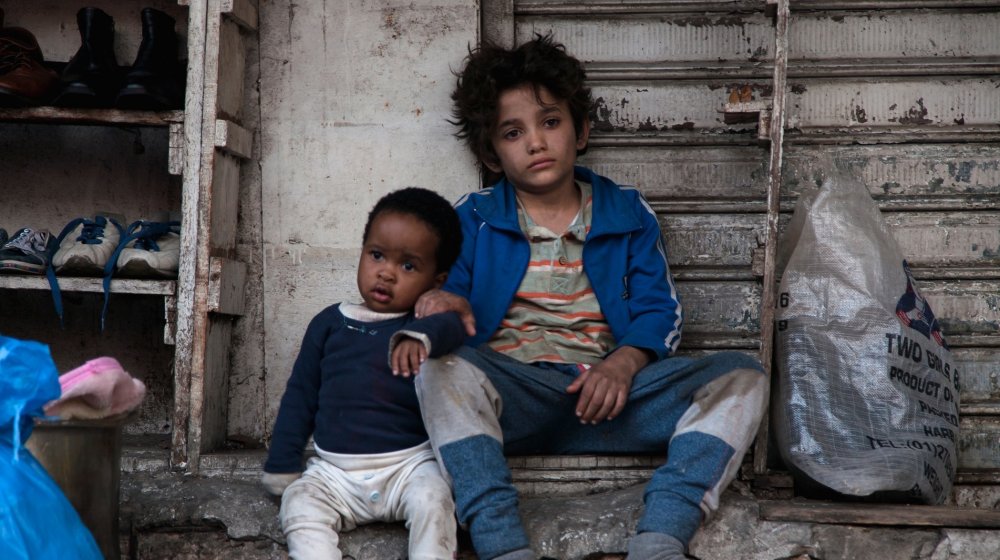
Boluwatife Treasure Bankole as Yonas
Despite this banked fury, the film doesn’t dip into lurid self-pity or sentimentality. Sharp-eyed editing avoids maudlin close-ups, while Khaled Mouzanar’s soundtrack adds the texture of Ethiopian instruments to its melancholy strings. Shifera’s tender playing is pleasingly understated, while Zain Al Rafeea (who was working as a delivery boy when cast) is simply excellent in the lead role. In a spiky, foul-mouthed performance, he gives Zain the wary, weary adult toughness of a youngster whose childhood has been stolen from him. His 1,000-yard stare as he and Yonas shelter by a shop wall, out of hope and options, may be this year’s most punishing shot.
Capernaum’s odyssey, in which Zain battles the hazards of shantytowns, souks, prisons and betrayals with wily, angry energy, paints him as a resourceful figure fighting impossible odds rather than the passive child victim of charity adverts. If the film’s ending has a preachy, slightly fairytale air, its hero has earned its hopeful shift. The aerial shots of Beirut’s miles of battered, people-packed buildings with which Labaki punctuates the action hint at innumerable similar stories with unhappier outcomes.
In the March 2019 issue of Sight & Sound
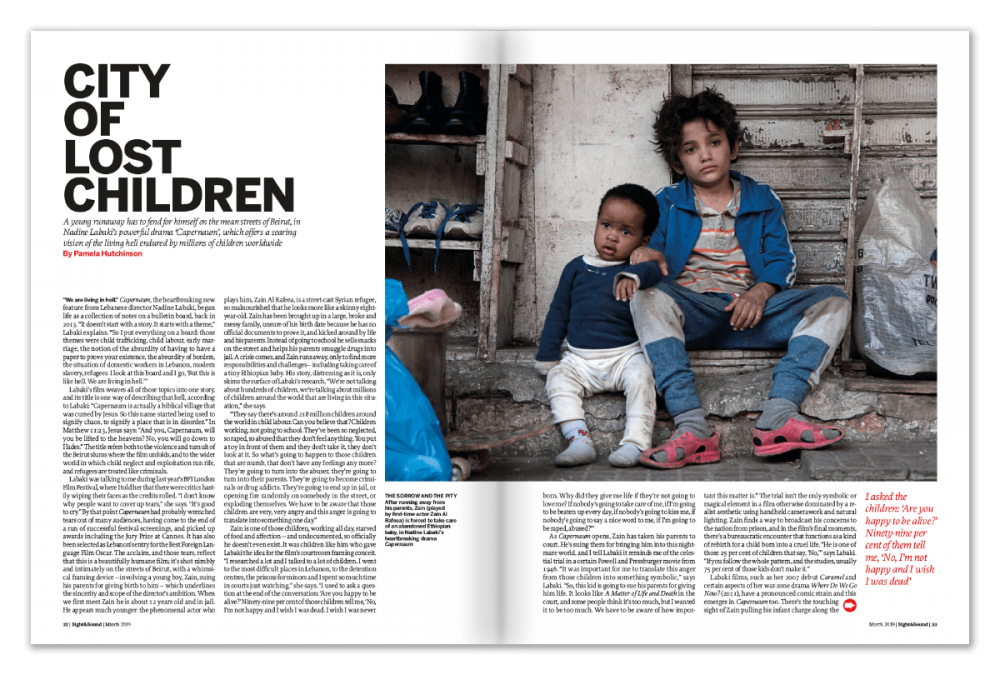
City of lost children
A young runaway has to fend for himself on the mean streets of Beirut in Nadine Labaki’s powerful drama Capernaum, which offers a searing vision of the living hell endured by millions of children worldwide. By Pamela Hutchinson.
-
Sight & Sound: the March 2019 issue

The versatile and complex performances of Barbara Stanwyck; plus If Beale Street Could Talk, Burning, Capernaum and our annual obituaries round-up.
-
The Digital Edition and Archive quick link
Log in here to your digital edition and archive subscription, take a look at the packages on offer and buy a subscription.




